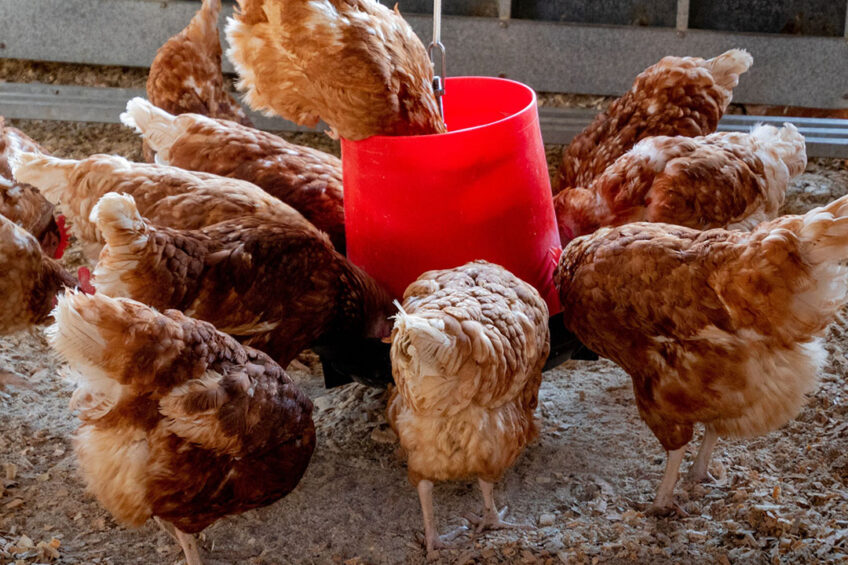Can insects be nutritionally enhanced for poultry feed?

Researchers are hoping that nutritionally enhanced insects could biofortify poultry feed with essential vitamins and minerals, increasing their nutritional value.
Fly larvae will be fed food waste that is nutritionally enhanced using nanometre sized natural minerals before being added to poultry feed. This is part of a feasibility study led by scientists at Nottingham Trent University and agri-tech company Flybox, which aims not only to boost the nutritional value of the poultry but also to reduce the carbon footprint of ingredients.
The research will involve biofortifying black soldier fly larvae with essential minerals for nutrition, such as zinc, iron, calcium and selenium. The larvae will then be added to grain for poultry before the research team evaluates the nutritional uptake in the birds.
Nutrition for birds and people
As well as improving the health and wellbeing of the birds, it is expected the approach will improve the nutritional value to consumers.
At present, birds are often reliant on proteins such as soybean oil, but a worldwide shortage means this component is often very expensive as well as being environmental unsustainable. The price of chicken feed has increased by half in the last 2 years and demand is expected to double by 2050.
The Nottingham researchers argue that the study will enable the adoption of an alternative hyper-local, low emission protein solution, by lowering cost of production while adding value to feed for poultry and other livestock.
The project, which is part of a 2-year £1 million initiative, will include the installation of a Flybox modular insect farm on the university’s campus, which will be used for feeding the black soldier fly larvae with the food waste and nanomaterial.
A nano-enhanced substrate
Researchers will develop a nano-enhanced substrate with naturally occurring minerals and amino acids essential for poultry health. Elements are combined together at an atomic scale until they uniformly grow into a nanometre size. By utilising the minerals at this size, the birds and insects can use and metabolise them more effectively.
Black soldier fly larvae meal is already being produced at a moderate industrial scale, but the use of insect meal in Europe and the UK is currently largely restricted to high profit margin niches in the petfood sector.
Hyper-local, circular and a low-carbon
Nottingham Trent researcher Dr Gareth Cave, from the university’s School of Science and Technology: “We are circumventing having to use all the supplements currently required, which are expensive, in short supply and not environmentally sustainable. The insects are essentially loaded with nutrition from waste food products, and this then becomes part of a natural diets for the poultry. Importantly, this is hyper-local, circular and a low-carbon way to address a serious challenge in the animal feed sector.”
Emily Burton, professor in sustainable food production at the university’s School of Animal, Rural and Environmental Sciences: “We see insect larvae as the key to circularising food production, so it is great to support a project aiming to optimise the production and use as poultry feed.”
Andrea Jagodic, CEO of Flybox, added: “This is an exciting route to positively influence unit economics for the entire insect protein industry. It is the right time to start integrating a precision agriculture approach when integrating insect meal into commercial feed.”
*The project is being funded by UK Research and Innovation‘s Biotechnology and Biological Sciences Research Council and Innovate UK.








